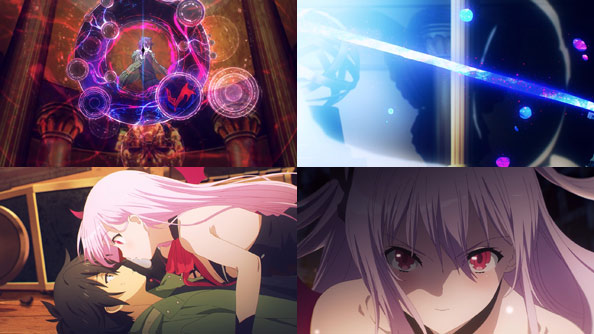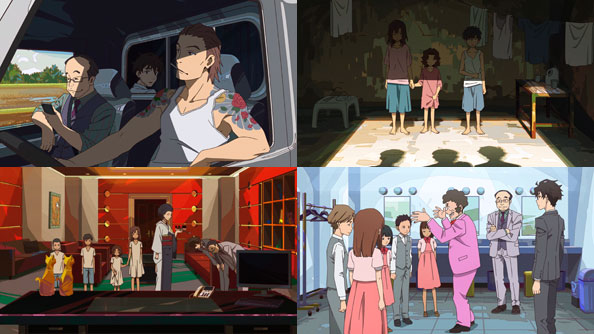After a thrilling, intriguing, but brief cold open which has a masked Naofumi, Raphtalia, and Filo fighting in an arena, we get the lay of the land post-Spirit Tortoise. The other three Cardinal Heroes are missing, Malty may be planning something untoward, and a new Guardian Spirit, the Phoenix, is about three months away. Queen Mirela asks for Naofumi’s help locating the other heroes so the four of them can protect the kingdom.
Naofumi is primarily concerned with protecting his own lands, but helping Melromarc will be beneficial to that goal. After a quick stop at Elhart’s to see if he can mend the gear they got in the other world, Naofumi and his party of Raph, Filo, and Rishia stop by the slave market to find most of the slaves have already been sold.
The slave merchant tells them that because slavery is no longer legal in Melromarc, the beastman slaves are simply being sold in markets where it is still legal, like Zeltoble the country of merchants and mercenaries. So Naofumi & Co. head there in a travel montage set to Kevin Penkin’s always stirring score.

Once there, they encounter a man who appears identical to the slave merchant in Melromarc, only he is actually that man’s uncle. He shows them to the literal underground of the capital, where rich folks bid on the beastmen slaver who claim to be from Raphtalia’s home village of Lurolona, but are actually lying.
It doesn’t matter, as the Lurolona brand, connected as it is to the legend of the Shield Hero, is all that matters, and they sell for top dollar. Money is everything, particularly in a merchant country, so the slave trader’s uncle recommends a way for Naofumi to make the money he needs to buy up as many slaves as possible: fighting in the underground arena.
While checking out the arena, Naofumi meets a comely lass who correctly predicts the winner of the bout they witness. Then Naofumi procures some masks and tells Raph and Filo that they’ll be participating in arena battles in order to procure the necessary funds for his goals.
While it takes Filo a bit to understand that they have to appear weak at first in order to get more people to bet for or against them, their first match ends splendidly. Initially billed as underdogs, Naofumi, Raph, and Filo stage a major “upset”, even though they’re hardly going all out.

You and me both, Filo. The events I described above are ostensibly what’s going on in this new season of Shield Hero. But it felt like a lot, and also felt like it might’ve behooved me to go back and re-watch the second season, which is generally considered to be not that great. But while at times I was like Filo and didn’t quite get everything going on and mentioned and hinted at, I also agree with Filo that it sounds like fun, so I’ll be continuing to tune in!



























































